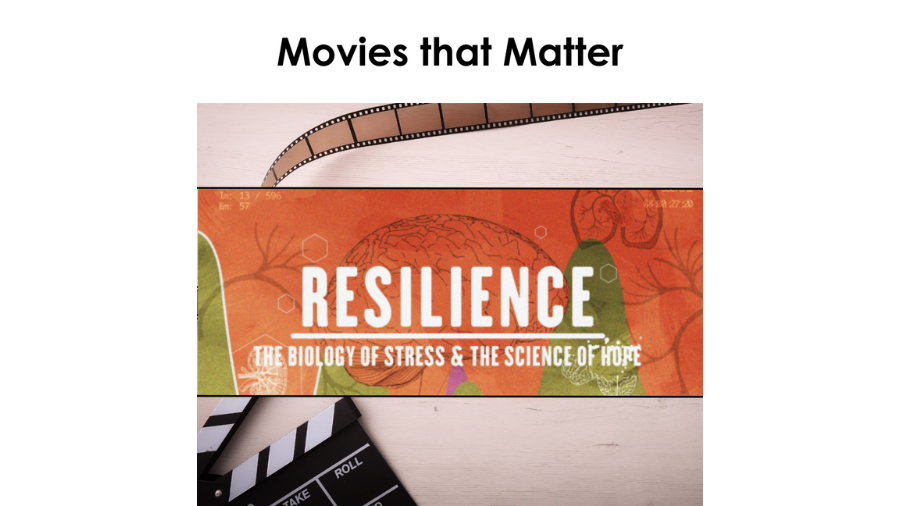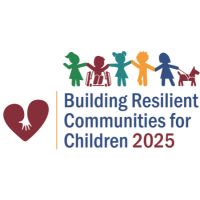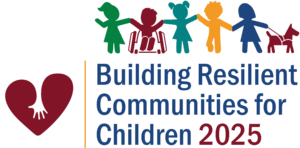A Discussion with Melissa Sadin (Ducks and Lions) and Ginger Healy (ATN)
ATN continues its commemoration of Children’s Mental Health Month (May) and PTSD Month (June) with the second screening and discussion in a three-part series of Trauma-Informed Movies that Matter. On June 8, Dr. Melissa Sadin – a lifelong educator, adoptive parent, speaker, author, and national expert on developmental trauma in schools – joined ATN’s Ginger Healy to lead attendees in a discussion of the film Resilience: The Biology of Stress & The Science of Hope. Dr. Sadin’s company Ducks and Lions provides educators the tools they need to build resilient students, prioritize self-care, and create equitable and trauma-focused classrooms.
Resilience, directed and produced by James Redford and released in 2016, is a compelling documentary that sheds light on the groundbreaking research of Dr. Vincent Felitti and Dr. Robert Anda that highlighted the profound impact of childhood trauma on individuals’ health and well-being. It also features the work and insights of Dr. Nadine Burke Harris, a pediatrician and pioneer in the treatment of toxic stress who has worked extensively to address the effects of adverse childhood experiences (ACEs) on individuals and communities in San Francisco and who went on to serve as the Surgeon General of California between 2019 and 2022. Through personal narratives and scientific evidence, Resilience emphasizes the long-lasting effects of ACEs on physical and mental health, while also presenting a ray of hope through resilience-building interventions. With a call to action, the documentary urges society to prioritize early intervention and trauma-informed care, aiming to create a more compassionate and supportive environment for all children.
While most attendees had seen the film previously, participants noted that with each viewing they gained a new insight. Many attendees resonated with the sense of sometimes feeling alone in their approach to trauma-informed practices within the systems in which they worked. One individual noted that what struck her this time around when watching was that “both Dr. Felitti and Dr. Anda on difference sides of the United States said that their colleagues were making fun of them and laughing and basically saying ‘no one is going to believe you and you’re wasting your time on this.’” Dr. Sadin shared her own similar experience, “This happened to me as a building principal as well, and feeling very much alone in the woods can be traumatizing no matter who you are, as a doctor, a parent, anything.” Another participant noted that “it is hard when you feel like you are maybe the lone wolf out there” and that when other teachers or administrators are against your ideas related to trauma-informed approaches that you can “start to become a little insecure.” Attendees described how ATN as an organization helps them to connect with others who share these values and commitments and gives them hope.
Attendees also shared their frustrations with trends related to limiting socioemotional learning approaches and the ways certain topics could be discussed. The group concurred that such limitations work against efforts to provide supportive trauma-informed environments where all students can thrive. Individuals noted that in some cases they have found that undertaking efforts described with word choices other than “trauma” – such as those focused on suicide prevention or building resilience – have had easier uptake in some locations that may turn an unwilling ear to efforts that focus on trauma explicitly. Dr. Sadin shared her excitement about approaches focused specifically on hope, particularly the science of hope as a predictive indicator of well-being in a person’s life – in a way that is both measurable and malleable. “I think hope is the next phase of all of this work, and I like that more than being ‘the trauma lady,’” she chuckled.
A core message of the film is the importance of a stable caring adult as a key to building resilience. ATN’s Ginger Healy reinforced the important way that relationships underpin our ability to develop resilience. “Resilience is built and scaffolded. We are not born gritty or resilient or with the ability to self-regulate. We need to have the experience repeatedly of having our needs met.”
Attendees shared various resources with each other, some from the film and some from other sources:
- Ducks and Lions – Led by Dr. Melissa Sadin, this company provides educators the tools they need to build resilient students, prioritize self-care, and create equitable and trauma-focused classrooms.
- Campaign for Trauma-Informed Policy and Practice (CTIPP) – Their mission is to create a healthy, just, resilient, and trauma-informed society where all individuals, families, and communities have the social, political, cultural, economic, and spiritual opportunities and support necessary to thrive. CTIPP’s Community Advocacy Network calls are held monthly and are free and open to all.
- Center on the Developing Child (Harvard University) – The Center maintains an extensive library of free resources, including powerful infographics, working papers, and short videos. Topics include introductions to early childhood development, brain architecture, “serve and return,” toxic stress, executive function, self-regulation, and resilience.
- SAMHSA’s “Concept of Trauma and Guidance for a Trauma-Informed Approach” – A foundational trauma-informed concept paper with simple lists that help to explain key concepts: “3 E’s of trauma – Events, Experiences, and Effects” and the “4 R’s of trauma-informed approaches – Realization, Recognize, Respond, and Resist Re-traumatization”



